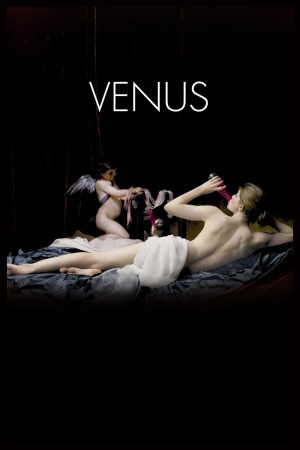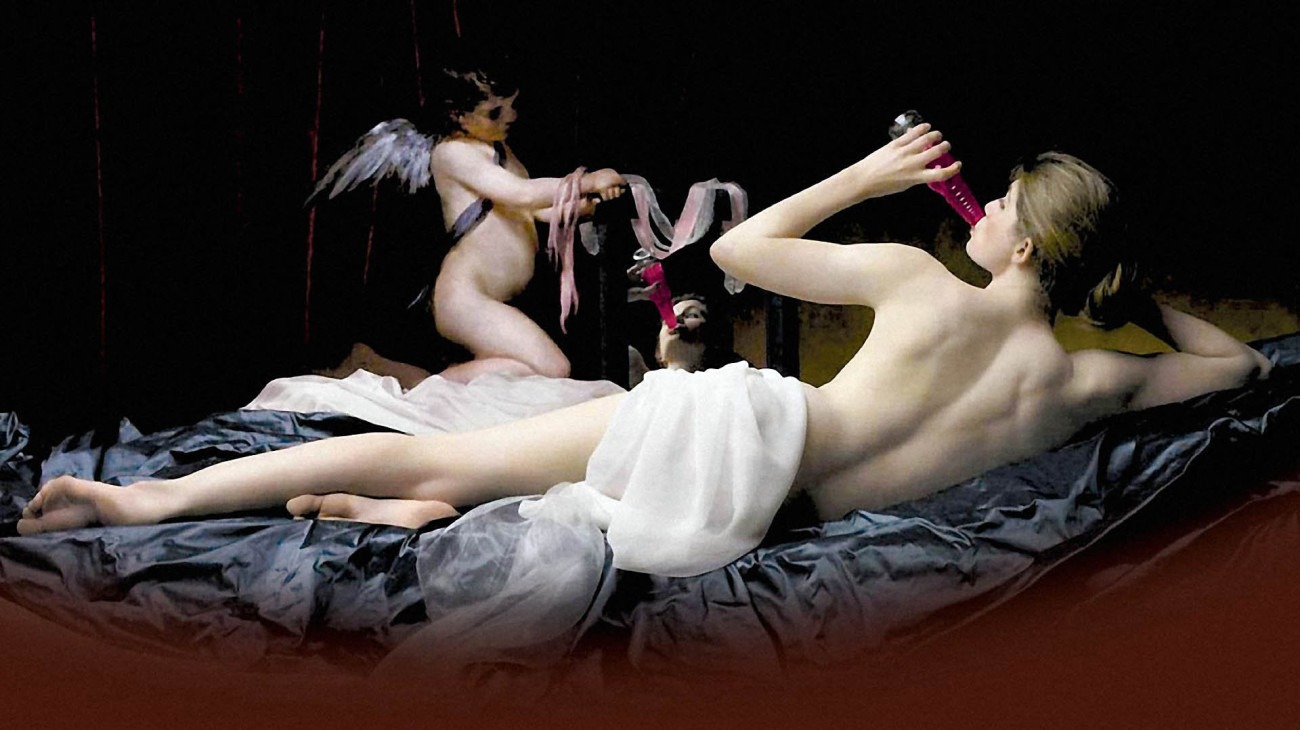
The greatest man what ever breathed
Today of all days is a good moment to reflect that one of the greatest generation of actors in cinema history is nearing death. I refer to the remarkable collection of stage-trained British performers who came to prominence in the late 1950s and 1960s, a group including such luminaries as Michael Caine, Maggie Smith, Anthony Hopkins, Derek Jacobi, the Redgrave sisters, and not least of all three individuals who were today nominated for Oscars, Helen Mirren, Judi Dench and Peter O'Toole.
For all that it has been pitched and received as an excuse for the 74-year-old O'Toole to extend or break his losing streak (mission accomplished), Venus isn't just an actors' showcase, although it's certainly possible to appreciate it on that level. It's a eulogy for a dying tradition, a letter of appreciation to O'Toole and all his contemporaries, and an acknowledgment that nobody that's come along in the last couple of decades comes even close to replacing them.
O'Toole plays Maurice, a decrepit actor reduced to playing dying and dead patriarchs, and haunting coffee shops with fellow decrepit actor Ian (Leslie Phillips), reading obituaries of their old colleagues and debating how many inches of text will be devoted to remembering them. One day, Ian announces that his niece's teenage daughter Jessie (Jodie Whittaker) will be moving in with him, to cook him meals and clean up and all of that. In short order, Maurice meets Jessie and falls deeply in lust, while she reciprocates only enough to lead the old man only enough for him to buy her things and help her get a job. Meanwhile, he compliments her beauty, comparing her to classical paintings, and ignoring her crassness and general venality.
As written, Maurice is not, by any possible method of judgment, a pleasant human being, and yet we sympathise with him and even love him, and this is due entirely to O'Toole. There is a gentleness about him, a touch of playfulness that transcends the lecherous old man trappings of the part. He is sweet and charming (as he always is; for he is Peter O'Toole), and he is trapped inside a weak, twitching, broken body. I think that might be the most striking and wonderful aspect of O'Toole's performance. Of course, he is an old man, and he has the body of an old man, but nothing like the nearly-collapsed husk on display in Venus. It is pitiful, but O'Toole shows the vitality of mind that lies underneath it, and so we are never reduced to feeling sorry for the old geezer. It is an interesting thing about the Brits: while we hide our elderly away, they make films celebrating every crag and line that comes with age (think of Judi Dench's withered face in Notes on a Scandal). This is a celebration of aging with a sound mind, not a woeful lament of lost youth.
At any rate, youth is not much prized in Venus. The sole representative of that class of humanity is Jessie, and she is as unlikable as Maurice on the page, without a similar balancing act in performance. Jodie Whittaker is simply not a very good actress, or at least her performance here is shrill and one-note, and this is a good thing: it underscores just how good O'Toole and his castmates are. Those castmates, for the record, include the aforementioned Leslie Phillips, a wonderful character actor who is probably most recognizable, obscenely, for voicing the Sorting Hat in the Harry Potter films. He is given the second-largest role in the film, and his Ian is everything that O'Toole's Maurice is not: neurotic, undignified, paranoid about aging. It is a great comic turn, and a fine antidote to the sickly sentimentality that might otherwise drift into the film. Richard Griffiths, late of The History Boys, appears in a small role that is notable only because he makes it that way.
The big gun of the supporting cast, turning in a performance that equals or betters even O'Toole's, is Vanessa Redgrave as Maurice's estranged wife. She has only a small number of scenes, but she dominates all of them with a character that is variously hurt, forgiving, sensible and sentimental. Beat for beat, it might well be the finest performance of a distinguished career.
I don't wish to suggest the film is more than it is. The story is at best undramatic, and at worst pointless (lookit the great actors! ...yes, and?). This is more than a disappointment: the writer, Hanif Kureishi, is responsible for at least a couple of minor masterpieces, including Stephen Frears' My Beautiful Laundrette and The Mother, his first film with Venus director Roger Michell. To see him essentially punt on the screenplay like this is frustrating. Fortunately, Michell acquits himself well, bringing a similar realist sensibility that he did to the austere The Mother, rather than the "Hey there, just cashin' this check" sensibility of Notting Hill. There's a lot of duskiness and ambient noise, and it evokes the tired life of the old men effectively, if a little bit depressingly.
Mostly, though, it's just about watching great actors do what they do best. Is it O'Toole's career-best work? Of course not, but it's also not a mere he's-old-let's-humor-him exercise. There's a moment about two-thirds through where Maurice steps into an abandoned outdoor theatre and hears the voices of his old roles speaking to him, which is to say O'Toole's old roles, speaking to us. It's a potent reminder of where the actor has been in his life, and a compelling argument that this extremely fine performance is a beautiful cap to a beautiful career.
7/10
For all that it has been pitched and received as an excuse for the 74-year-old O'Toole to extend or break his losing streak (mission accomplished), Venus isn't just an actors' showcase, although it's certainly possible to appreciate it on that level. It's a eulogy for a dying tradition, a letter of appreciation to O'Toole and all his contemporaries, and an acknowledgment that nobody that's come along in the last couple of decades comes even close to replacing them.
O'Toole plays Maurice, a decrepit actor reduced to playing dying and dead patriarchs, and haunting coffee shops with fellow decrepit actor Ian (Leslie Phillips), reading obituaries of their old colleagues and debating how many inches of text will be devoted to remembering them. One day, Ian announces that his niece's teenage daughter Jessie (Jodie Whittaker) will be moving in with him, to cook him meals and clean up and all of that. In short order, Maurice meets Jessie and falls deeply in lust, while she reciprocates only enough to lead the old man only enough for him to buy her things and help her get a job. Meanwhile, he compliments her beauty, comparing her to classical paintings, and ignoring her crassness and general venality.
As written, Maurice is not, by any possible method of judgment, a pleasant human being, and yet we sympathise with him and even love him, and this is due entirely to O'Toole. There is a gentleness about him, a touch of playfulness that transcends the lecherous old man trappings of the part. He is sweet and charming (as he always is; for he is Peter O'Toole), and he is trapped inside a weak, twitching, broken body. I think that might be the most striking and wonderful aspect of O'Toole's performance. Of course, he is an old man, and he has the body of an old man, but nothing like the nearly-collapsed husk on display in Venus. It is pitiful, but O'Toole shows the vitality of mind that lies underneath it, and so we are never reduced to feeling sorry for the old geezer. It is an interesting thing about the Brits: while we hide our elderly away, they make films celebrating every crag and line that comes with age (think of Judi Dench's withered face in Notes on a Scandal). This is a celebration of aging with a sound mind, not a woeful lament of lost youth.
At any rate, youth is not much prized in Venus. The sole representative of that class of humanity is Jessie, and she is as unlikable as Maurice on the page, without a similar balancing act in performance. Jodie Whittaker is simply not a very good actress, or at least her performance here is shrill and one-note, and this is a good thing: it underscores just how good O'Toole and his castmates are. Those castmates, for the record, include the aforementioned Leslie Phillips, a wonderful character actor who is probably most recognizable, obscenely, for voicing the Sorting Hat in the Harry Potter films. He is given the second-largest role in the film, and his Ian is everything that O'Toole's Maurice is not: neurotic, undignified, paranoid about aging. It is a great comic turn, and a fine antidote to the sickly sentimentality that might otherwise drift into the film. Richard Griffiths, late of The History Boys, appears in a small role that is notable only because he makes it that way.
The big gun of the supporting cast, turning in a performance that equals or betters even O'Toole's, is Vanessa Redgrave as Maurice's estranged wife. She has only a small number of scenes, but she dominates all of them with a character that is variously hurt, forgiving, sensible and sentimental. Beat for beat, it might well be the finest performance of a distinguished career.
I don't wish to suggest the film is more than it is. The story is at best undramatic, and at worst pointless (lookit the great actors! ...yes, and?). This is more than a disappointment: the writer, Hanif Kureishi, is responsible for at least a couple of minor masterpieces, including Stephen Frears' My Beautiful Laundrette and The Mother, his first film with Venus director Roger Michell. To see him essentially punt on the screenplay like this is frustrating. Fortunately, Michell acquits himself well, bringing a similar realist sensibility that he did to the austere The Mother, rather than the "Hey there, just cashin' this check" sensibility of Notting Hill. There's a lot of duskiness and ambient noise, and it evokes the tired life of the old men effectively, if a little bit depressingly.
Mostly, though, it's just about watching great actors do what they do best. Is it O'Toole's career-best work? Of course not, but it's also not a mere he's-old-let's-humor-him exercise. There's a moment about two-thirds through where Maurice steps into an abandoned outdoor theatre and hears the voices of his old roles speaking to him, which is to say O'Toole's old roles, speaking to us. It's a potent reminder of where the actor has been in his life, and a compelling argument that this extremely fine performance is a beautiful cap to a beautiful career.
7/10
Categories: art films for middlebrow people, british cinema






